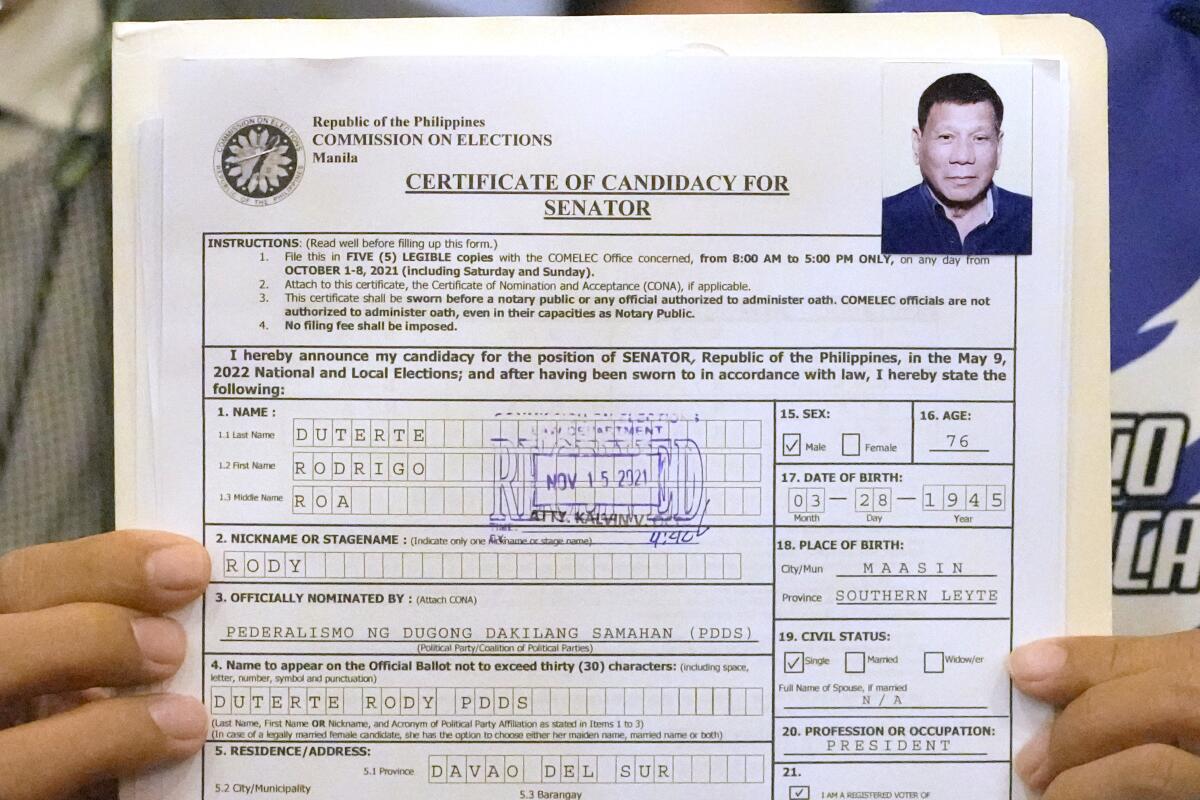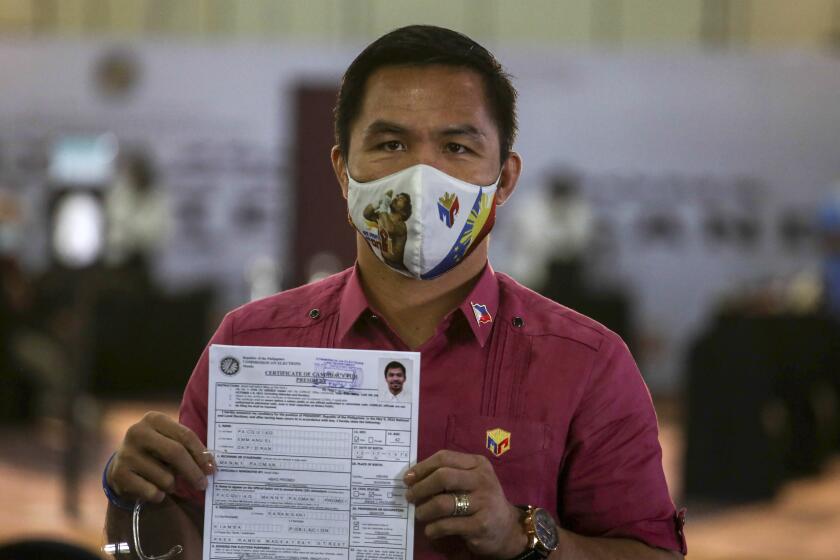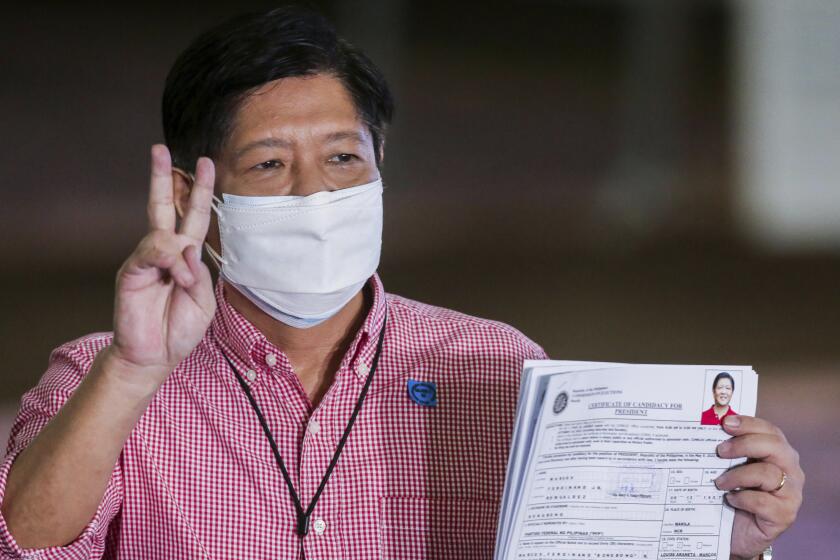Philippines’ Duterte scraps vow to retire, will run for Senate

- Share via
MANILA — Philippine President Rodrigo Duterte filed his candidacy Monday for a Senate seat in next year’s elections, walking back his vow that he would retire from politics when his term ends and prompting rights groups to accuse him of working to evade accountability for his deadly anti-drug campaign while in office.
A lawyer for the 76-year-old Duterte filed his candidacy at the Commission on Elections before the deadline for last-minute contenders in May’s nationwide elections.
Duterte announced early last month that he was retiring from politics after dropping plans to run for vice president because of what he said was widespread public sentiment against the move. His initial plan to seek the vice presidency outraged activists, who have described him as a human rights calamity in an Asian bastion of democracy.
“Duterte’s run for the Senate is yet another attempt of the tyrant to evade accountability from the International Criminal Court and other accountability mechanisms,” said Cristina Palabay of Karapatan, a left-wing alliance of human rights groups. “It is as sinister, opportunist and underhanded as the attempts of his daughter and allies to run in the 2022 elections.”
Duterte, a longtime city mayor known for his extra-tough approach to criminality and illegal drugs, launched a drug crackdown after winning the presidency in 2016 that has left more than 6,000 mostly petty suspects dead and alarmed Western governments and human rights groups. The International Criminal Court has begun an investigation of the killings, but Duterte has vowed never to cooperate with the inquiry and allow ICC investigators into the country.
Over the weekend, Duterte said that he planned to register his candidacy Monday for the vice presidency. However, legal experts say that could have contravened Philippine law, which limits presidents to a single six-year term, as the vice president replaces the elected president if the latter dies or is incapacitated for any reason, according to the country’s constitution.
Newly retired boxing legend Manny Pacquiao has filed his candidacy for the Philippine presidency ahead of elections in May.
Duterte backed out again from his latest plan to pursue the vice presidency after learning that his daughter, currently the mayor of their southern hometown of Davao, had filed her vice presidential candidacy Saturday in a move she made without consulting her father. Duterte had wanted his daughter to seek the presidency, and the two have had disagreements over her political plans.
“They will never collide. They will never ever fight each other for whatever position,” presidential spokesman Harry Roque told reporters Monday, shortly after Duterte registered his Senate candidacy.
Sara Duterte is seeking the vice presidency under the auspices of a major political party, the LAKAS CMD, but she was adopted by another party, the Partido Federal ng Pilipinas, to be the running mate of its presidential candidate, Ferdinand Marcos Jr., the son and namesake of the late Philippine dictator. Both the current president and the late dictator have long been condemned by international and local rights groups for gross rights violations.
The president said in an interview Sunday that the younger Marcos orchestrated the move that prompted his daughter to settle for a vice presidential run even though she has fared better in popularity polls than the late dictator’s son, a former senator and provincial governor. He said he would never support Marcos Jr. and instead would back his longtime aide, Sen. Bong Go, whom he asked to run for president.
The son and namesake of former Philippine dictator Ferdinand Marcos has registered to run in next year’s presidential election, sparking anger.
Despite his current criticisms, the president has been an ally of the Marcos family and authorized the 2016 burial of the dictator with full military honors despite fierce opposition from left-wing activists and nationalists.
Marcos placed the country under martial law in 1972 in an era marked by widespread human rights atrocities and economic plunder. He was ousted in a 1986 “people power” pro-democracy uprising and died three years later while in exile in Hawaii, without admitting any wrongdoing, including accusations that he and his family amassed an estimated $5 billion to $10 billion while he was in power.
Marcos Jr. has called the allegations against his father “lies.”
More than 18,000 government posts will be contested in the May 9 elections, including the presidency, vice presidency, half of the 24-member Senate, more than 300 seats in the House of Representatives and many provincial and local offices.
More to Read
Sign up for Essential California
The most important California stories and recommendations in your inbox every morning.
You may occasionally receive promotional content from the Los Angeles Times.












